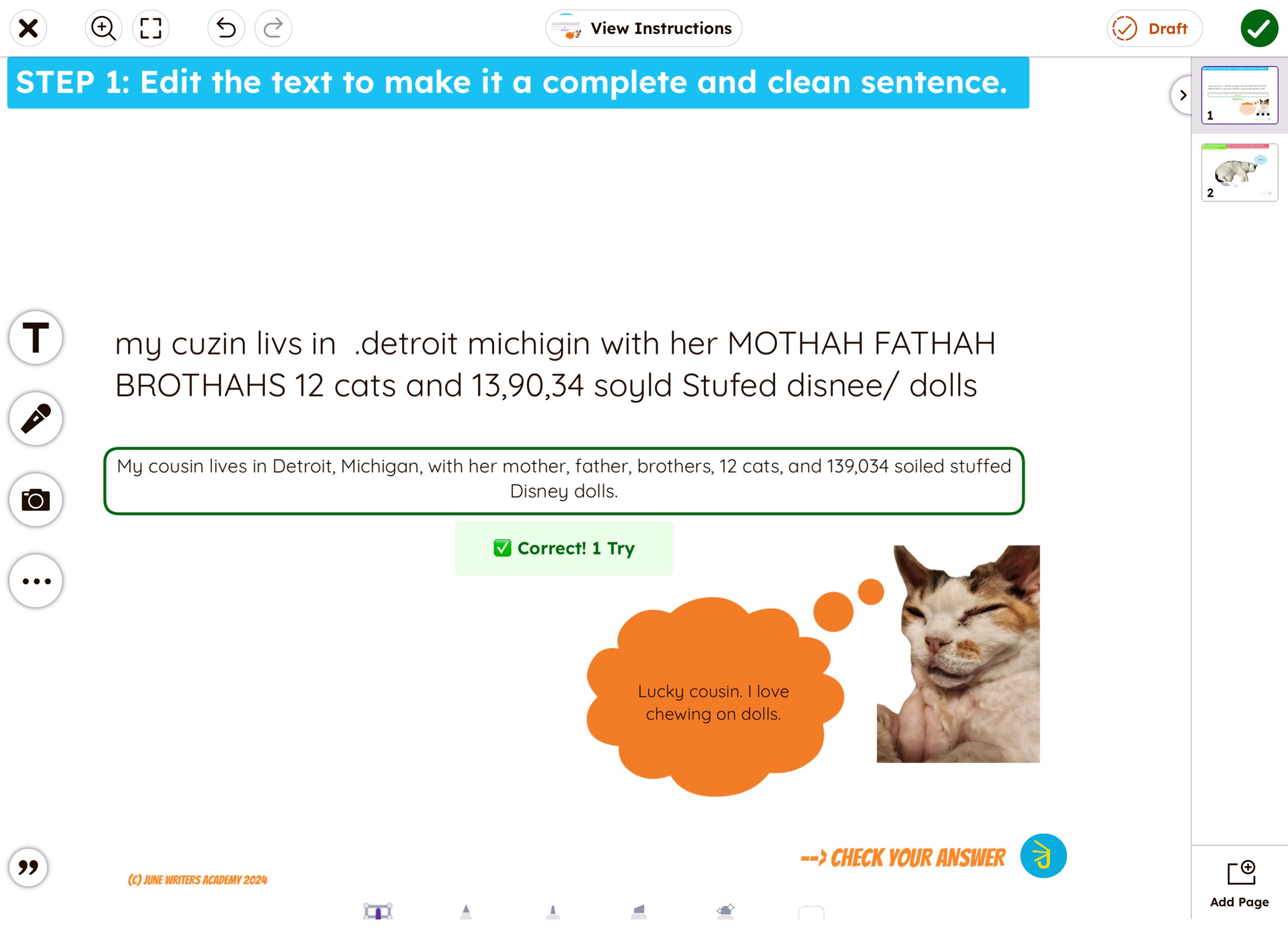Resources included in your purchases:
Video lesson
Practice 1.3.1: What is a sentence?
Practice 1.3.2: Declarative captions
Practice 1.3.3: Interrogative captions
Practice 1.3.4: Imperative captions
Quiz 1.3.5: Sentences
Teacher Guide
Robust support from June Writers Academy
Skills in focus:
Sentences communicate a complete and ordered idea using a subject and a predicate.
The subject of a sentence is generally a noun or pronoun.
A noun is a word used to identify a person, place, or thing.
A pronoun is a generic substitute for a noun that specifically refers to a person, group, or thing in the text (e.g., we, I, it).
A predicate is what’s said about the subject in a sentence or clause. Predicates consist of a verb and other stuff.
A verb is the action word–the thing that your subject is doing in the sentence.
The other stuff in a predicate is optional.
The subject and verb of your sentence should agree.
Capitalize the first letter of the sentence and end the sentence with ending punctuation.
There are four types of sentences: declarative, interrogative, imperative, and exclamatory.
Imperative sentences often have invisible subjects.
It’s OK to deviate from these conventions for specific and intentional impact, but not too often.






